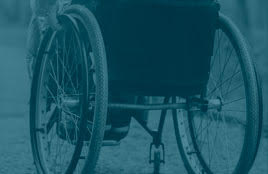This article was originally published on the Legal Intelligencer’s website, Law.com, on Thursday, August 29, 2013.
It appears to be fashionable, and even economically responsible, to consider obtaining significant medical procedures out of the country. As the cost of complex medical procedures in the United States has risen dramatically in the past several years, many individuals seek care abroad, where the belief is that the same level of medical care can be received for a fraction of the cost.
Indeed, a recent New York Times article, “The Growing Popularity of Having Surgery Overseas,” reported on this growing trend. What happens, however, if these carefully laid plans are disrupted by the mistakes of health care workers in foreign lands?
The problem arises when problems arise. Surgeons do not work alone. They depend upon nurses, technicians, other physicians, aides and a platoon of other potentially less qualified people. Unfortunately, even under the best of care, complications can arise. How they deal with those complications may be a significant concern. Besides, even surgeons are not immune from human error, careless acts or bone-numbing fatigue after a long night with a sick patient. All these issues put patients at risk.
Unfortunately, malpractice does happen and people are injured from the results. Also unfortunately, the only recourse is a financial one — you cannot reverse the negligence once it happens. To be made whole, money damages are the only option. This is something we take for granted in the United States. In many foreign lands, however, this recourse is unavailable to the injured, or the limitations to the proceedings become a significant hindrance.
Once we leave the shores of the United States, we are no longer under the jurisdiction of our courts, laws or the procedure of justice we enjoy. In engaging in commerce of any sort (medical care is considered commerce), unless there is a specific written agreement between the client and his or her providers granting jurisdiction to U.S. courts, an individual will be relegated to the jurisdiction of a foreign legal system. Furthermore, if there is a finding of malpractice resulting in a judgment of money damages, they will be subject to the treaties, if any, that foreign government has with the United States to collect the damages. Collecting money from abroad is not an easy task.
The structure of legal fees in foreign nations may also debilitate an injured patient wishing to sue. In the United States, medical malpractice actions are expensive to prosecute. What gives the average person without financial means the ability to get access to the courts is the U.S. system of contingency fees for legal representation. Unfortunately, many foreign legal systems prohibit contingency-fee agreements. This, of course, requires the plaintiff to pay all expenses and fees. For almost all, this is prohibitive and results in a closed court system.
Then there is the matter of who will decide the case. A jury trial is considered one of the most sacred rights in the American system of jurisprudence. By allowing debate among multiple people that all heard the same factual scenario, it is believed that differences are evened out and a fair decision is reached. This is not true with a single fact-finder, such as a judge or magistrate. Unfortunately, many foreign jurisdictions do not allow jury trials. This can be a serious disadvantage to a plaintiff.
Finally, how much is the case worth? Because of the high costs associated with medical malpractice matters, the potential damages or value of the action must be worth the costs and work associated with the prosecution of the case. Depending upon the country involved, damages can be limited to a specific monetary amount. In fact, specific types of damages, such as punitive damages, damages for pain and suffering and wrongful death, are limited or not even permitted. For example, certain Islamic countries base their system of damage assessment upon the interpretation of the Koran. It is considered by many that any assessment for injuries that is based upon fundamental religious principles usually does not turn out well for plaintiffs.
These are only a small portion of the potential legal pitfalls that plaintiffs face in the event of an injury following medical negligence in a foreign land. And while I’ve focused on instances of medical malpractice, it is not limited to this area. Any type of personal injury that occurs in a foreign country is subject to the same problems.
Significant medical procedures are precisely that: significant. And the legal issues that will be faced in the event of a problem will also be significant. Enjoying vacation abroad is nice, but if a surgical procedure abroad results in injury, there may be consequences for the patient.
James E. Foerstner is an attorney at Kolsby Gordon, where he concentrates his practice on representing significantly injured or disabled people following medical negligence, auto accidents or product and premise liability matters. Learn more about Mr. Foerstner’s work on his bio page.






